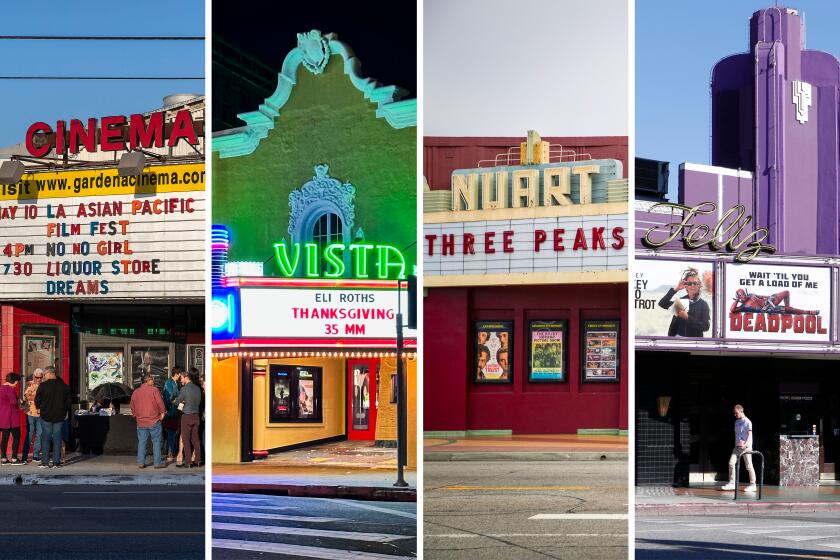 1
1
When propagandists for evil are unmasked, they face significant challenges in redefining their image. For instance, Leni Riefenstahl, the director of “Triumph of the Will” who worked under the Nazi regime, found herself in a difficult position after Germany’s defeat. She had lost her protections from the Third Reich but was spared prison time due to leniency from a sympathetic court. To salvage her reputation, she decided to become her most significant subject of propaganda: portraying herself as an innocent artist unfairly targeted, not a political profiteer. Although she insisted that Hitler’s favored filmmaker was a victim rather than an ideological opportunist, history may tell a different story.
Andres Veiel’s meticulous documentary, titled “Riefenstahl,” serves as both a biography and an in-depth examination of the filmmaker’s attempts to redeem her reputation and work. Instead of endorsing her crafted narrative of disillusioned innocence, the documentary offers a counterpoint that delves into Riefenstahl’s self-absorbed naivety concerning the influence of her talent. Furthermore, it suggests that she demonstrates a selective disregard for the circumstances that granted her power and acclaim.
In its most disturbing form, Riefenstahl’s work demonstrates a denialism so profound that it cannot be ignored. She infamously used child extras from a concentration camp in her movies and later denied knowing they were eventually transported by train to their deaths. Veiel’s investigation serves as a historical capsule from the 20th century, with unsettling parallels to our modern age marked by the insidious spreading of falsehoods.
The extensive collection from Riefenstahl’s estate, which includes an array of never-before-seen films, photos, personal documents, and letters, greatly contributes to the persuasive nature of the documentary. Despite adhering to traditional documentary methods, it also incorporates artistic elements such as fast-moving backlit filmstrips, shifting image focus, and multiple portrayals of Riefenstahl’s face across her life that highlight her timeless expression. Narrative clarity is sometimes provided through voiceovers, but the majority of the argument is built through thoughtful juxtapositions skillfully edited by Stefan Krumbiegel, Olaf Voigtlander, and Alfredo Castro.

Movies
The 27 best movie theaters in Los Angeles
We’ve identified 27 top movie theaters in Los Angeles, including the TCL Chinese, the New Beverly, the Alamo Drafthouse, and the one operated by AMC, which is located in Burbank.
This version maintains the original meaning of the sentence while making it more natural and easy to read by using a more varied sentence structure and simpler wording.
Key passages from Riefenstahl’s renowned works such as “Triumph of the Will,” “Olympia,” and her later work photographing the Nuba in Sudan are skillfully placed to illustrate that, for Riefenstahl, nothing was merely observed but instead beautifully idealized. Additionally, excerpts from various talk shows reveal her reactions when questioned, often slowing down the footage to highlight her discomfort. This can be seen as a subtle response or counterpoint to Riefenstahl’s famous use of slow motion to magnify physical power and strength.
As a movie reviewer, I must share that the documentary, “The Wonderful Horrible Life of Leni Riefenstahl” (1993) by Ray Müller, boasts some previously unseen footage. This previously untouched material offers a compelling glimpse into the later years of Leni Riefenstahl’s life, with a captivating exchange between her and Müller.
In this sequence, an elderly Riefenstahl passionately disputes certain details regarding her friendship with Goebbels, displaying a defiant spirit even at near ninety. On the other side of the camera, Müller’s sympathetic tone emerges, demonstrating that our primary Hitler apologist had no qualms about forging new connections decades later. This revelation underscores Riefenstahl’s enduring influence and the complexities surrounding her legacy.
The truth of Riefenstahl’s problematic work is most vividly illustrated in recordings of angry supporters after her confrontational TV appearance in the 1970s, where she was paired with a German woman of the same age who referred to her films as “Pied Piper” and deemed them “anti-human.” Later, one passionate supporter expressed a vision for a future Germany that would see a return to moral values. The agreement between Riefenstahl and this supporter is particularly unsettling.
Riefenstahl’s work is a reflection of several stark realizations. What it underscores, however, is that the creation of art is an amalgamation of numerous choices: she was captivated by ‘Mein Kampf’, witnessed derogatory remarks about Jews at rallies, carefully selected adoring camera angles, and meticulously decided what should be shown and concealed from the audience.
Read More
- Clash Royale Best Boss Bandit Champion decks
- Vampire’s Fall 2 redeem codes and how to use them (June 2025)
- Mobile Legends January 2026 Leaks: Upcoming new skins, heroes, events and more
- World Eternal Online promo codes and how to use them (September 2025)
- How to find the Roaming Oak Tree in Heartopia
- Clash Royale Season 79 “Fire and Ice” January 2026 Update and Balance Changes
- Clash Royale Furnace Evolution best decks guide
- Best Arena 9 Decks in Clast Royale
- Best Hero Card Decks in Clash Royale
- FC Mobile 26: EA opens voting for its official Team of the Year (TOTY)
2025-09-13 00:01